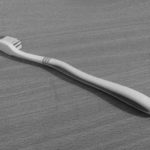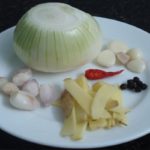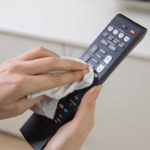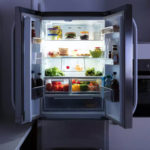The hectic city life often leads many families to buy groceries in bulk for the whole week, making food preservation a top concern. Recently, vacuum sealing machines have become widely available at affordable prices and are considered a solution for preserving meat, fish, and other types of food.
This method is preferred by many housewives as it gives a clean and organized feeling, making it easier for them to arrange items in the freezer. However, its effectiveness in food preservation is still a question for many. Should food be preserved by vacuum sealing? Does this method truly ensure and work for all types of food? These are the questions raised.
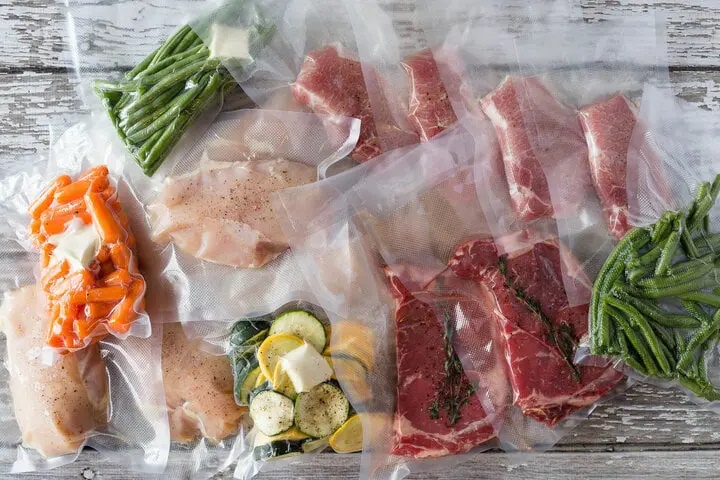
Many people wonder if food should be preserved by vacuum sealing. (Photo: Avid Armor)
Should food be preserved by vacuum sealing?
Vacuum sealing is the process of removing air from the food storage bag and sealing it tightly. This creates an environment without air surrounding the food, making it difficult for bacteria, mold, and yeast to grow. Vacuum sealing also helps reduce the amount of moisture around the food, making it less susceptible to spoilage compared to storing in regular food containers.
Therefore, vacuum sealing can be considered as an effective method for food preservation. However, vacuum sealing must be done correctly, otherwise it can be dangerous.
Responding to VnExpress, Dr. Vu Thi Tan, a lecturer at Hanoi University of Technology, said that even if you perform the vacuum sealing process correctly, if the food is not properly sanitized, dangerous bacteria can still grow in the oxygen-deprived environment, causing food poisoning or even death.
An example is the bacterium Clostridium botulinum, which thrives in oxygen-deprived environments and produces botulinum toxin. Meats, fish, seafood, fruits, and vegetables that have not been properly sanitized before vacuum sealing can be at risk of being contaminated by this bacterium.
“Vacuum sealing while the food is not clean or when it’s spoiled can increase the risk of food poisoning,” Dr. Tan said, also warning about the risk of food sellers vacuum sealing unsafe food. She advises thoroughly cleaning fresh food before vacuum sealing.
In general, whether fresh or cooked, vacuum-sealed food must be properly sanitized and safe to consume. Otherwise, vacuum-sealed bags can become a breeding ground for gas-producing bacteria that can cause illnesses in consumers.
Tips for vacuum-sealed food preservation
To maximize the effectiveness of this preservation method, you should:
– Use high-quality bags: Not all vacuum sealing bags are created equal. You should carefully choose good quality bags made from suitable materials for storing food.
– Choose suitable food: Some foods such as mushrooms, garlic, and soft cheeses can contain gas-producing bacteria and should not be preserved by vacuum sealing.
– Freeze the food before vacuum sealing: Freezing can help kill existing bacteria in the food and improve preservation. For unfrozen meat and fish, you need to thoroughly rinse them before vacuum sealing and make sure to label the vacuum-sealed bag with the use-by date for proper usage plan.
– Label and date the vacuum-sealed bags: With labeled bags, you can easily keep track of how long the food has been preserved and plan its usage accordingly.
– Store non-frozen food in a dry and cool place: Vacuum sealing can be used for various types of food, including those that do not need to be stored in the refrigerator. Grains, dried fruits, nuts, and spices that have been vacuum-sealed should be stored in a dry and cool place to avoid moisture or temperature fluctuations, such as in the kitchen pantry or refrigerator.
Vacuum sealing can help extend the shelf life of fresh fruits, vegetables, as well as meats, hard cheeses, and other perishable items. It is also particularly useful for storing easily perishable items in the freezer, such as meats, poultry, and fish.
According to VTC News
More Useful Advice for Homemakers (Part 2)
Have you heard of the surprisingly easy tips to make cooking and household chores simpler? White radish eliminates the acrid taste of salted meat, adding alum to raw shrimp helps soften it, and adding cold water when frying eggs can make them crispy – these are just a few of the tricks to make your life easier.

























